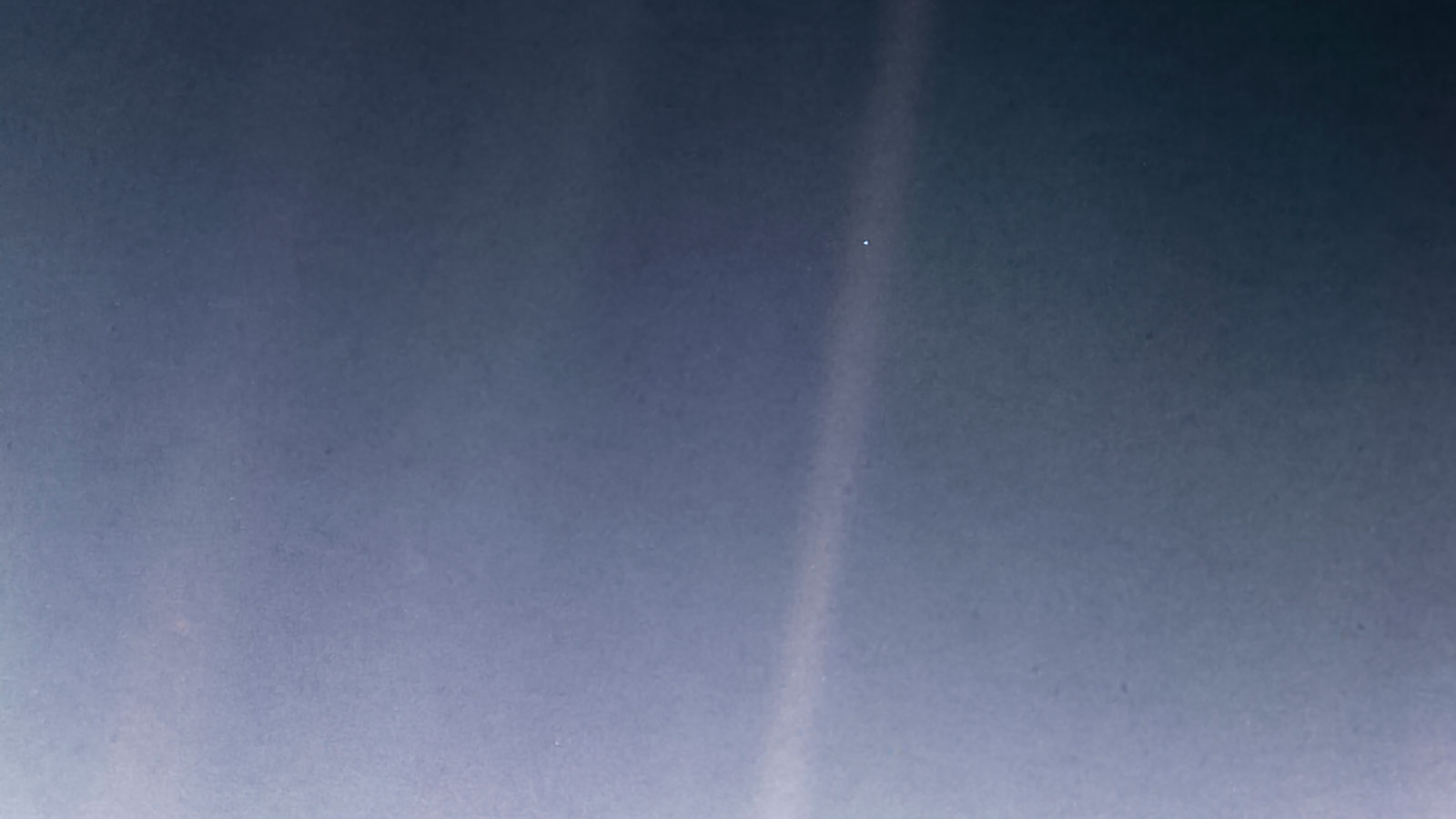The legendary Carl Sagan was behind the one of the
most iconic and important photographs of the modern era as he convinced NASA to
turn Voyager 1 around and take a photo of Earth. February 14, 2020 marked the
30th anniversary of the photo that helped shape many policies that
are still in affect today.

Voyager 1 was launched on September 5, 1977 and as it
soared through our solar system, it turned around on February 14, 1990, largely
due to Carl Sagan and his devotion to bring astronomy and the cosmos down to Earth.
Along with the famous “Pale Blue Dot” picture, Voyager 1 also photographed
every other planet in the solar system in what is called the, “Family Portrait”.
While Mercury was too close to the sun, Mars was scattered by sunlight, and
Pluto was too far away to be seen, the image of a faint tiny dot, less than a
pixel, gave a profound view of Earth that would encapsulate a need to be better
for generations to come.
It can be hard to not feel overwhelmed when looking at
photos of our precious planet, especially from extreme distance such as the one
taken by Voyager 1 or those taken by astronauts on the Moon. With what seems
like so much anger, violence, resentment, and hatred surrounding the world
today, these photos give an emotional response almost as if someone is pushing
back against all those negative attitudes and emotions. What many people try to
express on Earth, is so easily done by the universe, don’t let negativity destroy
the only home we have.
Although they cannot be contributed to this single
photo, many changes around the globe came in the following decades after humankind
sent probes and people into space. Environmental laws were put into place, civil
rights movements gained traction, unnecessary violence was stopped, among many
other policies and moral that were forever changed as whole societies saw what
was once thought of as just “Earth” and was now seen as home.
Carl Sagan not only had a hand in many space missions
and helped get the fantastic “Pale Blue Dot” photo of Earth, he shaped the
lives of so many who viewed him as a role model, me included. So, thank you Mr.
Sagan for urging NASA to take a photo that may have seemed useless, all while knowing how it could change humanity forever.
“Look again at that dot. That's here. That's home. That's us. On it everyone you love, everyone you know, everyone you ever heard of, every human being who ever was, lived out their lives. The aggregate of our joy and suffering, thousands of confident religions, ideologies, and economic doctrines, every hunter and forager, every hero and coward, every creator and destroyer of civilization, every king and peasant, every young couple in love, every mother and father, hopeful child, inventor and explorer, every teacher of morals, every corrupt politician, every "superstar," every "supreme leader," every saint and sinner in the history of our species lived there-on a mote of dust suspended in a sunbeam.
The Earth is a very small stage in a vast cosmic arena. Think of the endless cruelties visited by the inhabitants of one corner of this pixel on the scarcely distinguishable inhabitants of some other corner, how frequent their misunderstandings, how eager they are to kill one another, how fervent their hatreds. Think of the rivers of blood spilled by all those generals and emperors so that, in glory and triumph, they could become the momentary masters of a fraction of a dot.
Our posturings, our imagined self-importance, the delusion that we have some privileged position in the Universe, are challenged by this point of pale light. Our planet is a lonely speck in the great enveloping cosmic dark. In our obscurity, in all this vastness, there is no hint that help will come from elsewhere to save us from ourselves.
The Earth is the only world known so far to harbor life. There is nowhere else, at least in the near future, to which our species could migrate. Visit, yes. Settle, not yet. Like it or not, for the moment the Earth is where we make our stand.
It has been said that astronomy is a humbling and character-building experience. There is perhaps no better demonstration of the folly of human conceits than this distant image of our tiny world. To me, it underscores our responsibility to deal more kindly with one another, and to preserve and cherish the pale blue dot, the only home we've ever known."
- Carl Sagan, Pale Blue Dot: A Vision of the Human Future in Space
Photos courtesy of NASA
Video courtesy of The Planetary Society
Comments
Post a Comment